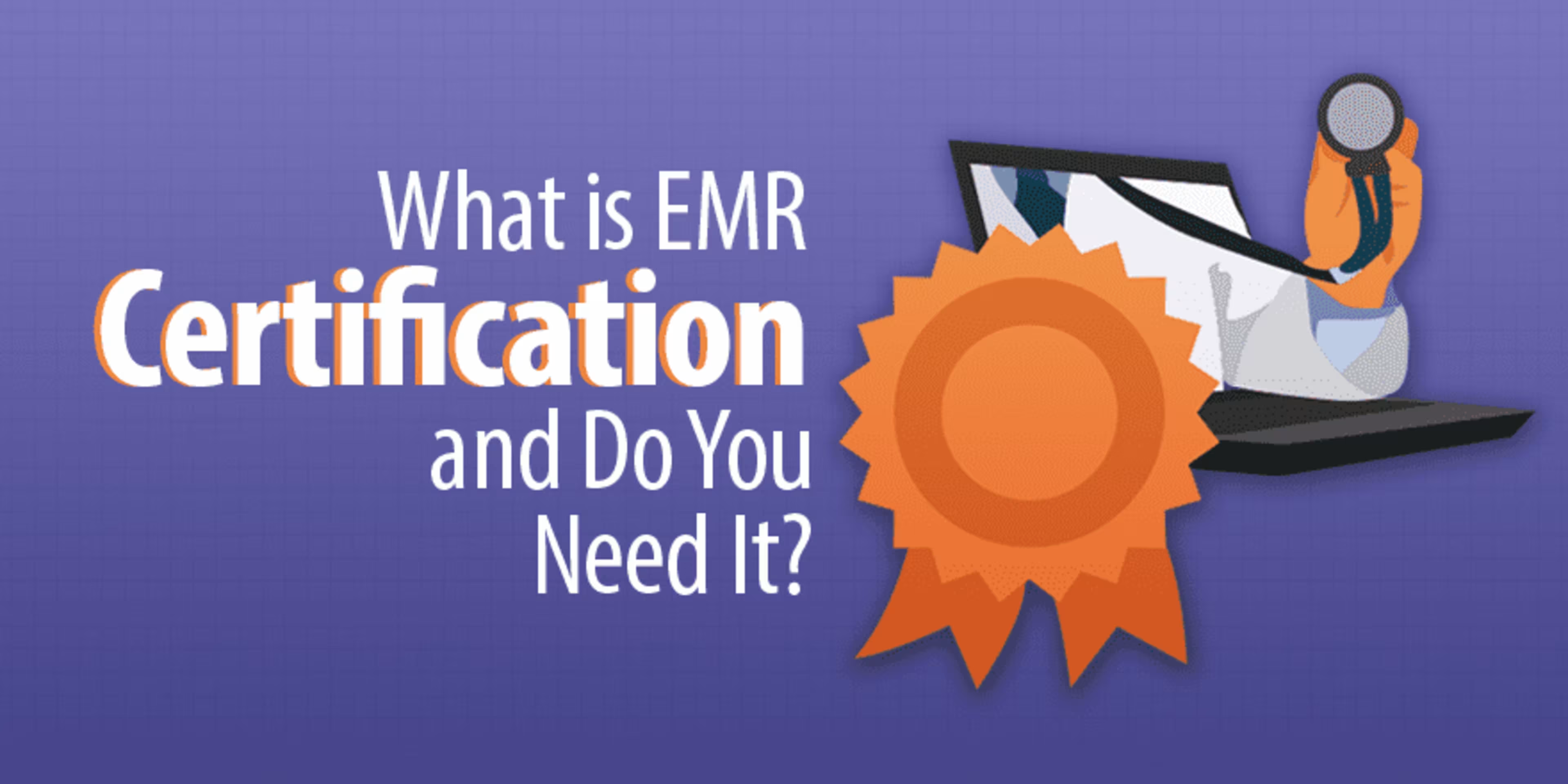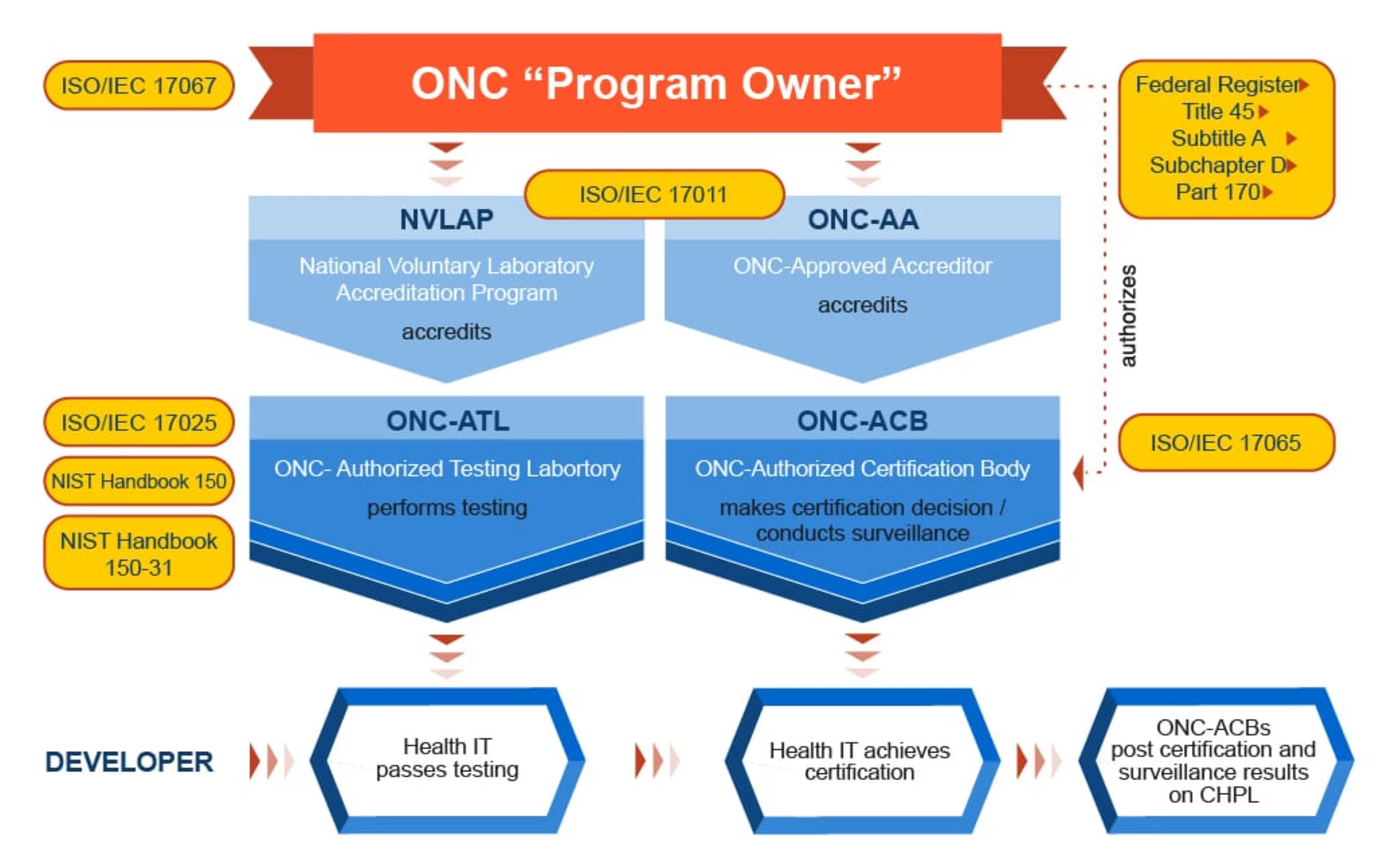Wrestler Enzo Amore is a certified G, (and bona-fide stud) and you can’t teach that.
What you can teach, however, is what EMR certification is and whether you need it (spoiler alert, you probably do if you work with Medicare and Medicaid).
In 2016 MACRA (Medicare Access and CHIP Reauthorization Act) replaced Meaningful Use (MU), however, most MU requirements still apply.
In addition, the Center for Medicare and Medicaid Services (CMS) must still measure the meaningful use of certified EMR software.

Both the Merit-based Incentive Payment System (MIPS) and Advanced Alternative Payment Models (APMs) require physicians to use certified EHR technology. EHR software is certified by Office of the National Coordinator for Health Information Technology Authorized Testing and Certification Bodies (ONC-ATCB). EHR or EMR software that is certified by ONC-ATCB is called Certified Electronic Health Records Technology, or CEHRT.

Time for a Bob Ross acronym overload break.
We’re back. CEHRT means the software meets the Secretary of Health and Human Services’ minimum standards for security and functionality.
You must use a certified EHR to qualify for Medicare and Medicaid EHR Incentive Programs.
Using a CEHRT means your system qualifies you to get compensated under Meaningful Use.
What are the HHS Secretary’s minimum standards?
According to Nextech, a quarter of MACRA’s MIPS scoring is still based on an eligible professional’s MU participation. Here are some things EHRs must have or offer:
1. Portable data
EHRs store a ton of data. The CMS wants that data to be “structured,” which just means recorded and stored in the right way.
Data is said to be structured when it’s easy to view online, correct, and import into other software. This is called “interoperability.” CERHTs must store records that patients can view online, download, read, review, correct, and take to another doctor.
EHRs store what CMS calls a “Common Clinical Data Set.”
According to Acumen Physician Solutions, the Common Clinical Data Set includes the following patient information:
Past procedures including devices implanted
Past and current health problems
All members of the clinical care team
Current and former medications
Immunizations received
Medication allergies
Laboratory tests run and their results
Assessment and treatment plans
Height, weight, blood pressure, and BMI
Goals and health concerns
Care plan
Whether they’re a smoker
Family health history
But according to HealthIT.gov, demographic data, vital signs, smoking status, clinical summaries, lab results, family health history, problem list, medications, medication allergies, and advance directives are no longer applicable for the CMS EHR Incentive Programs. Also no longer applicable: patient reminders, electronic notes, imaging, and electronic medication administration records.
Part of making sure data is structured is making sure it’s clean. Which is why CEHRT Health IT Modules must deduplicate aggregated test patient data for the Eligible Clinician Group calculation method.
As far as where the data needs to go, CEHRTs must be able to transmit data to immunization registries and public health agencies (PHA). For instance, CEHRTs must be able to transmit “Syndromic Surveillance” data to PHAs so they can track symptoms over locations and people groups. Other types of data PHAs should get from CEHRTs include electronic case reporting, health care surveys, and cancer registries.
2. Security and privacy
Features like secure messaging, end-user device encryption, and automatically logging users out after a period of inactivity help make an EHR more secure.
3. Help improving outcomes and reduce outcome disparities
The buzzwords for this requirement are “clinical decision support” and “clinical quality measures.” This encompasses everything from the EHR having patient-specific education resources to electronic prescribing to reporting.
How does the ONC decide whether an EMR meets its standards?
The National Voluntary Laboratory Accreditation Program runs the Healthcare Information Technology Testing Laboratory Accreditation Program in collaboration with the ONC-ATCB. The National Institute of Standards and Technology accredits and oversees the Healthcare Information Technology Testing Laboratory Accreditation Program’s Testing Laboratories .
Simple, right?
This graphic from HealthIT.gov depicts the ONC Health IT Certification Program’s organizational structure.

What questions should you ask before buying a CERHT?
My colleague Gaby at Software Advice has some excellent recommendations for EHR buyers.
Here are some questions to ask your vendor before making a purchase:
Is the whole EHR certified or just one module? “For example, a software company could get certification for an e-Prescribing tool,” Gaby writes. Your EHR must have at least two certified EHR modules in order for you to qualify for MU incentives.
Is the current version of the EHR certified or only a previous version? The ONC must approve name changes as well, so make sure the current version, with the same name, is approved.
Does this EHR integrate with my medical billing and scheduling applications, or does it come with that functionality built-in?
Do you have any guarantees? For instance, CureMD guarantees its software has and will maintain MU EHR certification. If it doesn’t, CureMD will credit you up to 12 months of support fees.
Conclusion
MACRA and MIPS replaced Meaningful Use, but you still need to use a certified EHR to get paid the full amount possible.
Software Advice has a good comparison of Cehrt options. For a more comprehensive list the Certified Health IT Product List (CHPL) is a comprehensive report of all certified Health Modules tested and certified by ONC Health IT Certification Program.
Our EMR software directory allows you to filter to see only Meaningful Use certified and ONC-ATCB certified software. You can further narrow your results by feature set. Check it out!